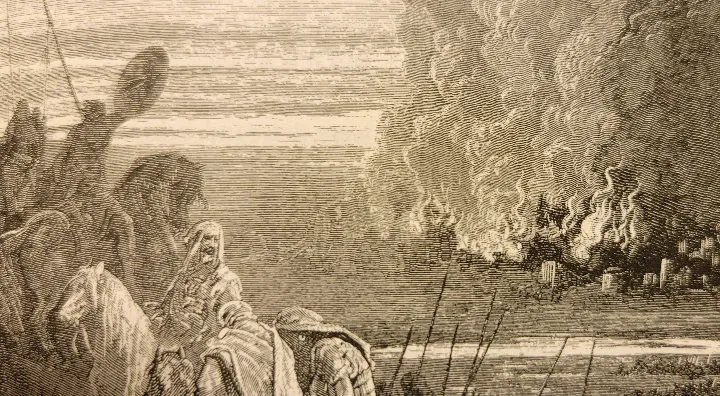Heavenly Kingdoms - Chapter 5
Richard Charlston to John Charlston, 12th of July 1856.
Dear Father,
I know I have not communicated with you in many months - perhaps it has been over a year now - but now that I have set sail away from the shores of England I feel free enough of the entanglements that choked our filial bond to send you this letter. Or perhaps it is cowardice; this would appeal to you, I think, as a judgement of my actions - if you think of me anymore that is. But I shall not descend into bitterness; the sea air is apt enough in quaking the heart that one does not wish for more than nature already foists upon them. I will say, then say no more, that I hope you have improved or one day soon will pause your descent and see the incline of sobriety as a prospect worth devoting what years you have left to, at the very least for the sake of your daughter who I know lashed herself in regret at her possible neglect of you at a time when your frailty hung in the balance. As promised, I will say no more on a subject I know will be loathsome to your eyes, prideful as they are, and will move onto other, freer subjects.
Anne may have told you of my desires to visit the orient under guise of my martial responsibilities, so perhaps it will serve as a balm towards our joint misfortunes for me to recount my adventures thus far in hopes, not of reconciliation, but of granting you solace that one of your blood still has life in them worthy of consideration, should pride in the Charlston name still be of any value to you that is. I for one have a greater clarity through the hardship of being wrenched from all that I know, which, as you are no doubt cognizant of, or were in your lucid days, is usual when our former concerns are made trivial by the harshness of greater powers – Gods of Seas and Storms, Neptune and Jupiter; each have made me question the veracity of any mortal presumption to power, be it over other men, or the land and elements. Even ourselves are at times unmasterable but the acceptance of such and submission to the futility of fighting the relentless wind has the tranquilizing ability to make such mastery obsolete.
One may ask what business we have in traversing this realm of hideous convulsion; a labile land that burrs the edges of each spine and sunders the palsied will under its rise and fall. The stomach tells of discontent and begs for the stability of soil and grass, yet some make this place their home and treat it as the ripest of fields, ready for the harvest, be they whaleman or no, eager to extract the salty swathe from its cresting waves to lick off their lip with the glee of reaping vital sustenance. They ascend the rigging with the purpose of a foraging ant, each other following in mindless pursuit of communal objectives. It is perhaps, apt to describe this vessel as a hive when it functions at its peak, but it is in the dysfunction that one is reminded of the humanity of these travelers, standing, as they are, on the corpses of oak to protect their dangling souls from the grave of eternity that dwells ever hungry and aloof beneath.
When they are at their busiest there is no bother for the captain to maintain order but the moments of becalming or pending in dock in wait of wind are the moments where ribaldry enshrines itself in place of sailor’s duty. When a bottle is sourced and passed between them the cry of Baccus seeps through the night and the Captain, straining for sleep in his quarters, prepares the whip for the next days judicial festivities. Perhaps you would be welcome among them, dear father, although your brooding may not be conducive to their mischievous designs. I for one cannot join them, being too high born – surely a jest given our station of late – and being, as Anne would say in youth, “dour as death”. Perhaps I am destined for your fate father; to glower at miracles and think them cheap tricks. One cannot know, but my current expedience from your vicinity, even from the very country of your presence should indicate my preference that such a fate not be mine.
Yet still here, amongst the extremity of life, where the concerns of our family fall into horizons long left in the wake of this soaring clipper – aptly named The Escape - I cannot then take the next step toward capturing it as the sailors do when performing their necessary functions on the ship or playing amongst themselves with their songs and games that drink so perfectly propels into blissful immorality. We are ourselves only in the context of our dreams, it seems, as reality is too random, too full of long nights to allow the torch of pristine clarity to penetrate its floundering pitch and see clearly what the sun and moon declare our shape to be against the stark and unyielding firmament.
I have no better sense than any, although I know myself to a certain extent. I am not a coward but I would avoid what pragmatism deems unworthy at expense of experience. The case in point is thus: Upon reaching the equatorial line, knowing of the custom to submit those who had never crossed this invisible border to some harsh trial in celebration of their first crossing, I stayed aloof in my cabin thinking that propriety would prevent the low born from entering my cabin to accost a gentleman. Alas, the captain had suspended all rank and nobility and set upon the sea a republic of equal men. Thus was I swiftly found to be absent, comically assaulted and manhandled absurdly up to the deck where I saw the captain accoutred in the flowing robes of Neptune, just long enough to witness this suspension of sanity before the blindfold was lowered and I was submitted to the customary lashing with foul liquid about the face and then plunged several times into bath prepared for the simulated drowning.
I hope, father, that this brings you some amusement at least, and demonstrates I am not too proud to share with you my humiliations. On the contrary, my spirits are somewhat lifted after the event, and the crew seem more congenial toward my perceived superciliousness - having now seen me stripped of all dignity, such a perception contains little to engender more than a modicum of comic respect. Perhaps a ritual of the kind would serve well back home as a way for our kind to temper the underserved grandeur of our supposedly divine allotment – but you would say that is the Whig in me talking.
You would not like the captain, father, as he too disavows the antediluvian prejudices of the Tories - your proud compatriots in liberal suppression - although, unlike myself, must remain steadfast in his purblind detachment to the injustices we see when making port upon the coast of Africa lest he be withheld from the respect needed to manage the ignorant crew. It is only after duty is done, in his cabin when we dine of an evening, that his true heart is unveiled to me and we commiserate on the treatment of the peoples of that dire continent. England itself may have abolished that most heinous of humanity’s crimes but one must never forget what cruelty is still propagated within pockets of the Earth’s wilderness, away from the society of the genteel, many of whom own swathes of land, profiting by its wealth yet think not of the cruelty of its managers and the suffering of the sun-scoured labor employed upon its fields. I am thankful at least our family has never profited from such sin, at least not directly, and pray that the disquietude coming from the civilized parts of the Americas can be the fatal note in the death knell of this darkest of human miseries.
But progress is ancient and there is still much to lament. We had made port in Takoradi on the African Gold Coast to resupply our victuals and there we, grim-faced, could glimpse firsthand the blank misery of the suppressed and the joviality of the oppressor who, with seemingly perfect justification by outlawed law and a clean conscious, submits another to beatings for no crime other than a wish to rest from a labor they never had choice but to perform and receive no compensation. I say only a glimpse as I have heard much worse reports from plantations in the islands of the new world, but what I see is sufficient for the repulsion of my rationality. Such words you may have heard before, father, and scoff at my soft heart, but you have not seen it; I challenge you to see such darkness and not be repelled. Think only what mother would have thought: was she not always the guiding light to your brutish but supplicant heart? But I am being harsh; forgive me.
Perhaps I should explain why I have travelled this long and dim path at all; no, I speak not of philosophical paths, or the meanderings of my letter, but the literal sea path past the Horn, when the route by steamer through the Mediterranean, via Malta, Alexandria, then via train across Egypt out into the Red Sea on toward Aden in Yemen would bring expedience to my journey. I can only say that with the future developments, possibly in the Suez, this legendary route past the Horn, braved by so many great explorers and sailors will be finally obsolete and one can no longer bear the distinction of having travelled it. Luckily my commanding officers were willing to indulge this romantic’s wish to experience a piece of the old world, given that there is no urgency for my deployment, being from my own request, and my willingness to fund the journey in part from my own pocket and travel upon this merchant vessel, the fleetest of ships of the old design. The crew viewed me with suspicion at first, as my nature is abnormal to most, but, as mentioned, certain events on our journey warmed them towards me and made my pallor more agreeable to their rough-hewn vision. The modern world will be upon us shortly, but I have at least had a taste of the arduous labors of our ancestors before the romance of sail and lamplight is replaced with Vulcan’s vision of steam and spark.
Alas, I have related little but musings and stunted philosophies – I know how you abhor such peregrinations - but I can only communicate with you in such a way as befits my manner. Anne was ever the better story teller, inward facing as I ever am, but what else can I do to relate my heart to yours. Such may ever be the distance between our generational minds, yet may this letter work to somehow open your heart to what your son and heir feels about the world we both inhabit yet do not share.
Your son,
Richard
Cape Town, 12th of July, 1856.
Dear Father,
I know I have not communicated with you in many months - perhaps it has been over a year now - but now that I have set sail away from the shores of England I feel free enough of the entanglements that choked our filial bond to send you this letter. Or perhaps it is cowardice; this would appeal to you, I think, as a judgement of my actions - if you think of me anymore that is. But I shall not descend into bitterness; the sea air is apt enough in quaking the heart that one does not wish for more than nature already foists upon them. I will say, then say no more, that I hope you have improved or one day soon will pause your descent and see the incline of sobriety as a prospect worth devoting what years you have left to, at the very least for the sake of your daughter who I know lashed herself in regret at her possible neglect of you at a time when your frailty hung in the balance. As promised, I will say no more on a subject I know will be loathsome to your eyes, prideful as they are, and will move onto other, freer subjects.
Anne may have told you of my desires to visit the orient under guise of my martial responsibilities, so perhaps it will serve as a balm towards our joint misfortunes for me to recount my adventures thus far in hopes, not of reconciliation, but of granting you solace that one of your blood still has life in them worthy of consideration, should pride in the Charlston name still be of any value to you that is. I for one have a greater clarity through the hardship of being wrenched from all that I know, which, as you are no doubt cognizant of, or were in your lucid days, is usual when our former concerns are made trivial by the harshness of greater powers – Gods of Seas and Storms, Neptune and Jupiter; each have made me question the veracity of any mortal presumption to power, be it over other men, or the land and elements. Even ourselves are at times unmasterable but the acceptance of such and submission to the futility of fighting the relentless wind has the tranquilizing ability to make such mastery obsolete.
One may ask what business we have in traversing this realm of hideous convulsion; a labile land that burrs the edges of each spine and sunders the palsied will under its rise and fall. The stomach tells of discontent and begs for the stability of soil and grass, yet some make this place their home and treat it as the ripest of fields, ready for the harvest, be they whaleman or no, eager to extract the salty swathe from its cresting waves to lick off their lip with the glee of reaping vital sustenance. They ascend the rigging with the purpose of a foraging ant, each other following in mindless pursuit of communal objectives. It is perhaps, apt to describe this vessel as a hive when it functions at its peak, but it is in the dysfunction that one is reminded of the humanity of these travelers, standing, as they are, on the corpses of oak to protect their dangling souls from the grave of eternity that dwells ever hungry and aloof beneath.
When they are at their busiest there is no bother for the captain to maintain order but the moments of becalming or pending in dock in wait of wind are the moments where ribaldry enshrines itself in place of sailor’s duty. When a bottle is sourced and passed between them the cry of Baccus seeps through the night and the Captain, straining for sleep in his quarters, prepares the whip for the next days judicial festivities. Perhaps you would be welcome among them, dear father, although your brooding may not be conducive to their mischievous designs. I for one cannot join them, being too high born – surely a jest given our station of late – and being, as Anne would say in youth, “dour as death”. Perhaps I am destined for your fate father; to glower at miracles and think them cheap tricks. One cannot know, but my current expedience from your vicinity, even from the very country of your presence should indicate my preference that such a fate not be mine.
Yet still here, amongst the extremity of life, where the concerns of our family fall into horizons long left in the wake of this soaring clipper – aptly named The Escape - I cannot then take the next step toward capturing it as the sailors do when performing their necessary functions on the ship or playing amongst themselves with their songs and games that drink so perfectly propels into blissful immorality. We are ourselves only in the context of our dreams, it seems, as reality is too random, too full of long nights to allow the torch of pristine clarity to penetrate its floundering pitch and see clearly what the sun and moon declare our shape to be against the stark and unyielding firmament.
I have no better sense than any, although I know myself to a certain extent. I am not a coward but I would avoid what pragmatism deems unworthy at expense of experience. The case in point is thus: Upon reaching the equatorial line, knowing of the custom to submit those who had never crossed this invisible border to some harsh trial in celebration of their first crossing, I stayed aloof in my cabin thinking that propriety would prevent the low born from entering my cabin to accost a gentleman. Alas, the captain had suspended all rank and nobility and set upon the sea a republic of equal men. Thus was I swiftly found to be absent, comically assaulted and manhandled absurdly up to the deck where I saw the captain accoutred in the flowing robes of Neptune, just long enough to witness this suspension of sanity before the blindfold was lowered and I was submitted to the customary lashing with foul liquid about the face and then plunged several times into bath prepared for the simulated drowning.
I hope, father, that this brings you some amusement at least, and demonstrates I am not too proud to share with you my humiliations. On the contrary, my spirits are somewhat lifted after the event, and the crew seem more congenial toward my perceived superciliousness - having now seen me stripped of all dignity, such a perception contains little to engender more than a modicum of comic respect. Perhaps a ritual of the kind would serve well back home as a way for our kind to temper the underserved grandeur of our supposedly divine allotment – but you would say that is the Whig in me talking.
You would not like the captain, father, as he too disavows the antediluvian prejudices of the Tories - your proud compatriots in liberal suppression - although, unlike myself, must remain steadfast in his purblind detachment to the injustices we see when making port upon the coast of Africa lest he be withheld from the respect needed to manage the ignorant crew. It is only after duty is done, in his cabin when we dine of an evening, that his true heart is unveiled to me and we commiserate on the treatment of the peoples of that dire continent. England itself may have abolished that most heinous of humanity’s crimes but one must never forget what cruelty is still propagated within pockets of the Earth’s wilderness, away from the society of the genteel, many of whom own swathes of land, profiting by its wealth yet think not of the cruelty of its managers and the suffering of the sun-scoured labor employed upon its fields. I am thankful at least our family has never profited from such sin, at least not directly, and pray that the disquietude coming from the civilized parts of the Americas can be the fatal note in the death knell of this darkest of human miseries.
But progress is ancient and there is still much to lament. We had made port in Takoradi on the African Gold Coast to resupply our victuals and there we, grim-faced, could glimpse firsthand the blank misery of the suppressed and the joviality of the oppressor who, with seemingly perfect justification by outlawed law and a clean conscious, submits another to beatings for no crime other than a wish to rest from a labor they never had choice but to perform and receive no compensation. I say only a glimpse as I have heard much worse reports from plantations in the islands of the new world, but what I see is sufficient for the repulsion of my rationality. Such words you may have heard before, father, and scoff at my soft heart, but you have not seen it; I challenge you to see such darkness and not be repelled. Think only what mother would have thought: was she not always the guiding light to your brutish but supplicant heart? But I am being harsh; forgive me.
Perhaps I should explain why I have travelled this long and dim path at all; no, I speak not of philosophical paths, or the meanderings of my letter, but the literal sea path past the Horn, when the route by steamer through the Mediterranean, via Malta, Alexandria, then via train across Egypt out into the Red Sea on toward Aden in Yemen would bring expedience to my journey. I can only say that with the future developments, possibly in the Suez, this legendary route past the Horn, braved by so many great explorers and sailors will be finally obsolete and one can no longer bear the distinction of having travelled it. Luckily my commanding officers were willing to indulge this romantic’s wish to experience a piece of the old world, given that there is no urgency for my deployment, being from my own request, and my willingness to fund the journey in part from my own pocket and travel upon this merchant vessel, the fleetest of ships of the old design. The crew viewed me with suspicion at first, as my nature is abnormal to most, but, as mentioned, certain events on our journey warmed them towards me and made my pallor more agreeable to their rough-hewn vision. The modern world will be upon us shortly, but I have at least had a taste of the arduous labors of our ancestors before the romance of sail and lamplight is replaced with Vulcan’s vision of steam and spark.
Alas, I have related little but musings and stunted philosophies – I know how you abhor such peregrinations - but I can only communicate with you in such a way as befits my manner. Anne was ever the better story teller, inward facing as I ever am, but what else can I do to relate my heart to yours. Such may ever be the distance between our generational minds, yet may this letter work to somehow open your heart to what your son and heir feels about the world we both inhabit yet do not share.
Your son,
Richard
Cape Town, 12th of July, 1856.
Related Stories







